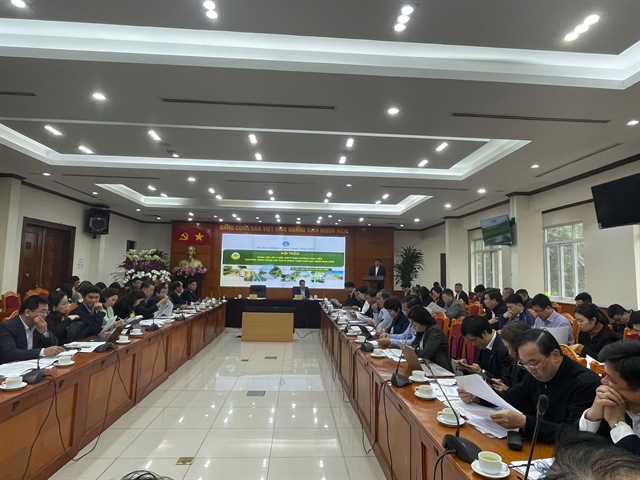 Society
Society

 |
| The Politburo requires that Party members are not disciplined for having a third child or more. — VNA/VNS Photo |
HÀ NỘI — The Politburo has requested an urgent review and revision of legal documents regulating the number of children, towards removing disciplinary actions against Party members who have a third child or more.
The Office of the Party Central Committee has recently issued a document to the Central Inspection Commission, the Party committees of the Government, the National Assembly and the Ministry of Health, notifying the Politburo’s opinions regarding the review of the implementation of Resolution No. 21/2017 of the Party Central Committee on population work in the new context, as well as amendments to Party and State regulations on population policy.
At its recent meeting, the Politburo considered a proposal from the Central Inspection Commission regarding the review of regulations on handling violations of population policy, along with a report from the Party Committee of the Ministry of Health on the review of the seven-year implementation of the Resolution No. 21 and feedback from relevant agencies.
The Politburo agreed with the content, recommendations and proposals outlined in the report evaluating the seven-year implementation of Resolution No. 21 and the review results of Party regulations related to violations of population policy.
The Party Committee of the Government is tasked with directing the Party Committee of the Ministry of Health to study and incorporate the opinions of the Politburo and relevant agencies in order to finalise the Politburo’s conclusions and submit them to the Standing Committee of the Party Secretariat for review and issuance.
The Party committees of the National Assembly and the Government are asked to co-ordinate leadership and accelerate the drafting and approval of the Population Law by the National Assembly in line with the 13th Party Congress resolution, aiming for passage in 2025.
Initially, the Politburo has requested an urgent review and revision of legal documents regulating the number of children, with completion required within the first quarter of this year.
The Central Inspection Commission is requested to draft amendments to the regulations of the Party Central Committee, the Politburo, and the Party Secretariat regarding disciplinary actions for population policy violations.
It has also directed the commission to revise Guiding Document No. 05, dated November 22, 2022, to ensure that cases of having a third child or more are not subject to disciplinary action, aligning with broader legal reforms (without retroactively overturning previous disciplinary actions).
Under current regulations, Party members who have a third child are considered to have violated population policy and may face disciplinary action, except in specific cases.
Development and integration of population data
The Party committees of the Government and the Ministry of Public Security are assigned to complete the development and integration of a unified population data system, based on the national database on population enabling accurate assessment of demographic trends, including both quantity and quality indicators.
This effort aims to support the precise, timely and effective formulation and implementation of population policies in the coming period.
Previously, the Ministry of Health had submitted a proposal to relevant authorities seeking approval to eliminate regulations on disciplinary actions for population policy violations that are no longer appropriate –starting with abolishing penalties related to the number of children.
In the draft Population Law, the ministry has proposed policies to maintain replacement-level fertility, particularly given Việt Nam’s declining birth rate.
The key policy groups in the draft law include maintaining replacement-level fertility, reducing gender imbalance at birth and restoring the natural sex ratio at birth, adapting to an ageing population, rational population distribution, improving population health and integrating population factors into socio-economic development planning. — VNS









